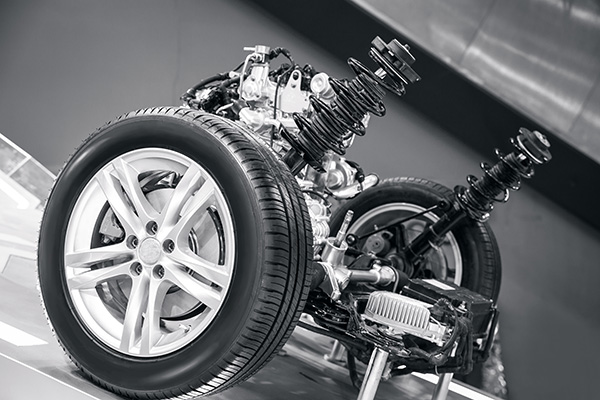
Driving a car comes with its fair share of quirks and odd noises, but one sound that can be particularly concerning is a knocking noise when driving over bumps or uneven pavement. It's not just an annoyance but a signal that something might be wrong with your vehicle. Whether you're an experienced driver or someone who recently got their license, this unsettling sound can make you wonder what's happening beneath your car's surface. So, let's look into the reasons why your car might be knocking over bumps and what you can do about it.
1. Suspension System Issues
The suspension system is your car's cushion, absorbing shocks and ensuring a smooth ride. When you hear a knocking noise over bumps, it's often related to a problem in this system. Key components of the suspension system include the shock absorbers, struts, springs, and control arms. Here's how each might be causing that disturbing knock:
Worn Shock Absorbers or Struts
These components are crucial for dampening the impact of bumps. When they wear out, they can't absorb shocks effectively, leading to metal-on-metal contact that produces a knocking sound.
Damaged Springs
Springs support the car's weight and absorb larger shocks. If a spring is broken or worn out, it can cause uneven handling and a knocking noise.
Loose or Damaged Control Arms
Control arms connect the car's suspension to the frame. If these are loose or damaged, they can rattle and knock over bumps.
2. The Role of Ball Joints and Bushings
Another common source of knocking noises is the ball joints and bushings in your car's suspension. These small but mighty parts play a crucial role in maintaining stability and smooth operation.
Worn Ball Joints
Ball joints act as pivot points between the wheels and suspension. If they wear out, they can become loose, causing a knocking noise as the suspension moves.
Faulty Bushings
Bushings are rubber or polyurethane cushions that dampen vibrations and reduce friction. When they degrade, they lose their ability to cushion, resulting in knocks and clunks over bumps.
3. Steering System Components
The steering system, closely linked with the suspension, can also be the culprit behind those mysterious knocking sounds. Key areas to check include:
Tie Rod Ends
These connect the steering rack to the wheels. They can cause a knocking noise if worn out or loose.
Steering Rack
A faulty steering rack can lead to a knocking sound, particularly when turning or going over bumps. This is a serious issue that needs immediate attention.
4. Engine and Transmission Mounts
Though less common, engine and transmission mounts can also cause knocking sounds over bumps. These mounts secure the engine and transmission to the car's frame and absorb vibrations.
Worn Engine Mounts
When engine mounts wear out, they can't effectively absorb vibrations, leading to knocking sounds that are especially noticeable over bumps.
Faulty Transmission Mounts
Similar to engine mounts, if the transmission mounts are worn or damaged, they can cause the transmission to move excessively, resulting in a knock.
5. Other Potential Causes
While the suspension and steering systems are the most common culprits, other areas might also be responsible for that knocking noise:
- Exhaust System Issues: A loose or damaged exhaust system can knock against the car's underbody over bumps.
- Brake Components: Loose brake pads or damaged brake components can sometimes cause knocking sounds.
- Wheel Bearings: Worn wheel bearings can create a variety of noises, including knocking, especially when they are severely degraded.
Ensure your car's safety and comfort by addressing that knocking noise. Schedule an appointment with South Denver Automotive now for expert diagnosis and repair!